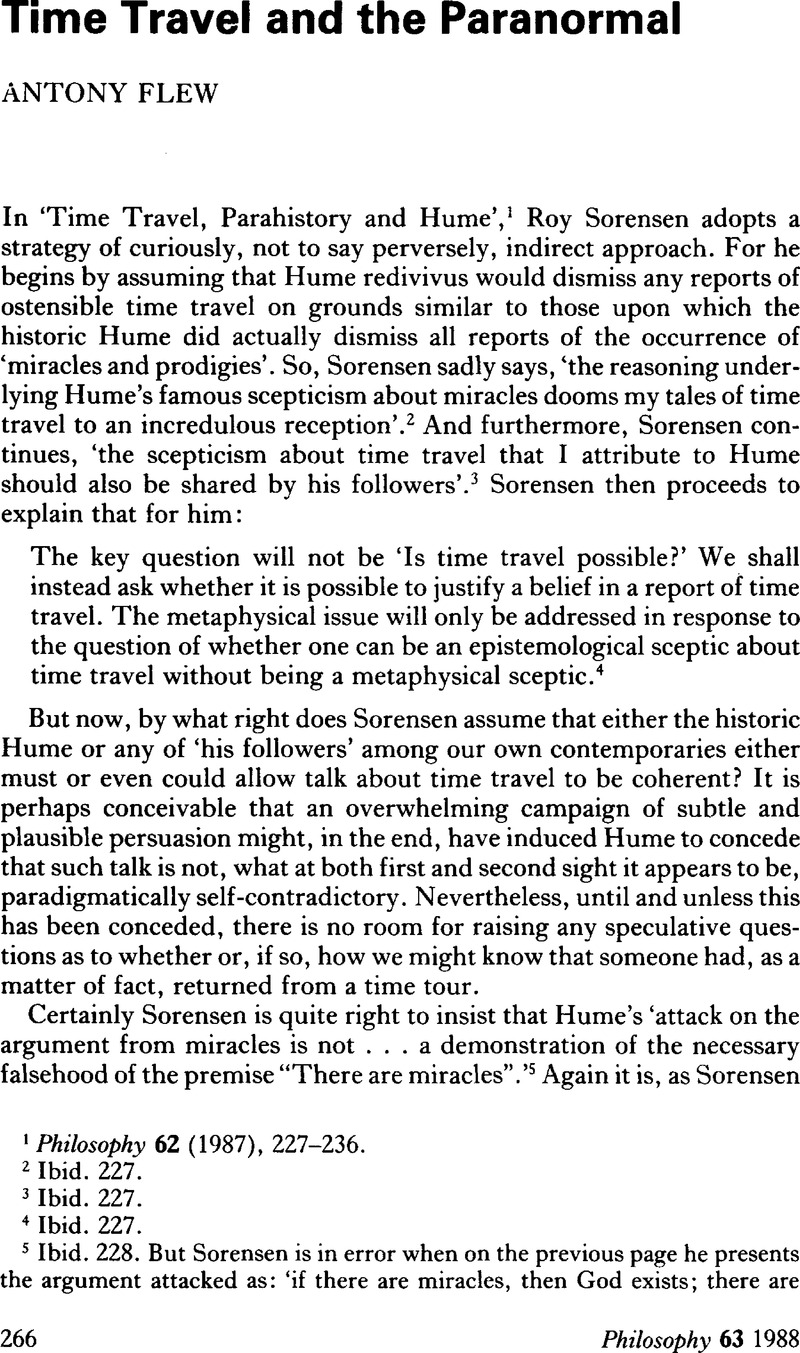Article contents
Time Travel and the Paranormal
Published online by Cambridge University Press: 30 January 2009
Abstract

- Type
- Discussion
- Information
- Copyright
- Copyright © The Royal Institute of Philosophy 1988
References
1 Philosophy 62 (1987), 227–236.Google Scholar
2 Ibid. 227.
3 Ibid. 227.
4 Ibid. 227.
5 Ibid. 228. But Sorensen is in error when on the previous page he presents the argument attacked as: ‘if there are miracles, then God exists; there are miracles, so God exists’. For what Hume is primarily concerned to refute is: not any argument of a natural theology; but the contention that the claims of a candidate revelation can be authenticated by the occurrence of endorsing miracles. See, for instance, my Hume's Philosophy of Belief (London: Routledge and Kegan Paul, 1961), 166–213.Google Scholar
6 Sorensen, , op. cit. 230.Google Scholar
7 For explanations of these terms see Readings in the Philosophical Problems of Parapsychology, Flew, Antony (ed.) (Buffalo, New York: Prometheus, 1987).Google Scholar
8 See, for instance, ‘The Presuppositions of Survival’, Philosophy 62 (1987) 17–30.CrossRefGoogle Scholar
- 2
- Cited by


